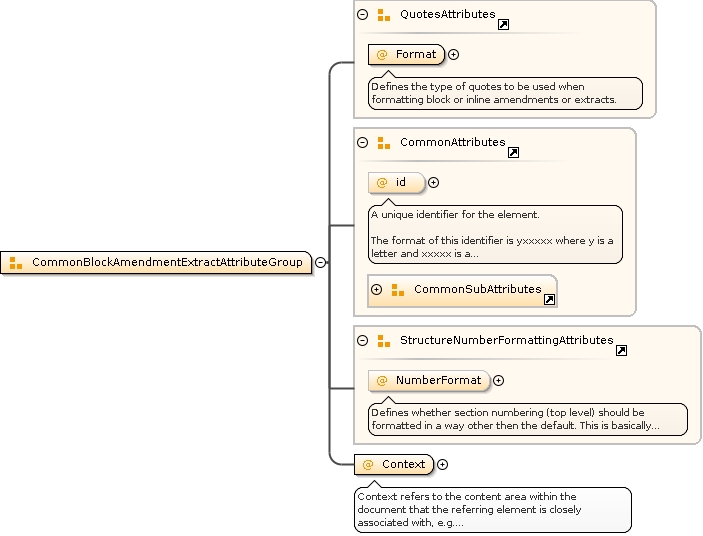| Namespace | http://www.legislation.gov.uk/namespaces/legislation | ||||||||||||
|
Diagram
|
 |
||||||||||||
|
Used by
|
|
||||||||||||
|
Attributes
|
|
||||||||||||
|
Source
|
|

